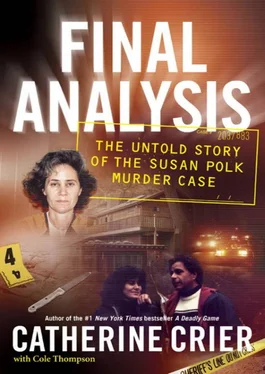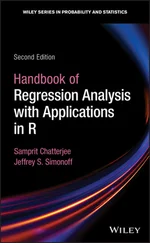“Miramonte has a unique policy of dropping students when their absences exceed fifteen…. In Gabe’s case, all of his absences were related to illness and were excused,” Susan wrote, claiming that the teen “appears to have mononucleosis.”
“As you well know, Gabe does not cut school or get into trouble… so all of Gabe’s excellent and hard work this semester has been un-credited [sic].”
As to Gabe’s custody, Susan wrote, “Judge Berkow, at your request, ordered me to undergo a psychological evaluation as a precondition.
“In your declaration filed in February, you described me as ‘healthy.’ Now, you are taking the position that I need to be evaluated. You are a psychologist. You have known me for some twenty-five years. Surely, no one would know better than you whether I am fit or not to parent my children…. It is clear that you are determined to punish me by taking the kids away from me. You have said repeatedly… that you will not let them go. It’s time to move on.”
Pulling open the desk drawer, Costa discovered more letters that were written and signed by Felix Polk. One was his appeal to the vice provost at UCLA to keep Adam from being dismissed. Another, dated Saturday, June 15, was addressed to Gabriel, and detailed Felix’s belief that his teenage son had vandalized his Saab several months earlier:
“I know that you are very, very mad at me and won’t talk on the phone,” the one-page single-spaced letter began. “I do want you to know that I think about you all the time and miss you terribly and have some deep concerns about what the future holds for us…in spite of the way you have rejected me and turned on me, I am not angry at you. Frustrated yes!
“Both you and Eli seem to have bought into mom’s horror stories about me. They are for the most part not true stories, but I don’t really have a chance to speak up for myself. I am faced with a closed system in which mom says what she says so hatefully about me, and I have no chance to point out what is true and what is not…. I have some real flaws and yet I am not the monster she portrays me to be.
“What you did to my car was uncalled for, destructive and senseless. You must really have been worked up into a lather to have done that. I am holding you responsible for the damage.”
There were also typewritten letters from Felix to Peter Weiss, an attorney, asking for a five thousand dollar disbursement from the “children’s trust” to cover legal fees in connection with Eli’s assault and subsequent probation violation, as well as several requests for monies for Adam’s UCLA tuition. During the course of the investigation, Costa learned that Weiss was Felix’s cousin and was serving as executor of a trust fund the Polks had set up for their children.
Detective Costa perched himself on the desktop and listened to the thirty voice mails on Felix Polk’s answering machine as investigators marked the mounds of paper into evidence. Most of the calls were from patients wanting to schedule appointments. Two were from a “Tom Pyne” also requesting an appointment.
“I recognize that name!” Detective Roxanne Gruenheid announced. Gruenheid was among those executing the search warrant that day. She explained that Eli Polk had offered his father’s patient, Tom Pyne, as a possible suspect during the interview that she and Detective Steve Warne had conducted at Byron Boys’ Ranch several days after Felix’s murder.
In another drawer, investigators found an envelope with Pyne’s return address in El Sobrante, a small East Bay city north of the Richmond Bridge. They would pay him a visit later that week.
Moving their search to the office closet, police discovered a manila envelope containing the blue .38-caliber revolver that Susan had mentioned in her first interview and a red plastic ammo container, along with the keys for the trigger lock. The gun was loaded with the trigger lock in place, and a quick check of the weapon confirmed that it was registered to Susan Polk. The detective noted it hadn’t been fired in some time. Unloading the weapon, Costa booked it into evidence for safekeeping.
Also in the closet was a rambling six-page letter Susan had faxed from the T-4 Bucks Motel on Highway 191 in Big Sky, Montana, on October 3, 2002. The letter appeared to be a portion of Susan’s personal diary. In it, she wrote about Felix being a member of the Israeli “Mossad” and knowing about the September 11 terrorist attacks, Costa noted.
“Susan mentions the recent divorce court rulings in which she claims that Felix got his spousal support reduced,” the detective wrote in his report. “Susan writes about being a medium and how Felix used to put her into trances. Most of the letter is talking about the Israeli army and the Mossad and how Susan believes they were involved in the 9/11 attacks.”
Several days after searching Felix’s office, Detective Costa received an interoffice envelope from a deputy sheriff employed at the county’s Court Services Division. It was addressed to a Judge Rivera at 725 Court Street in Martinez and had a return address of Jackson, Wyoming. The postmark indicated it had been mailed in 2002.
Costa immediately recognized the envelope’s contents as a duplicate of the six-page letter Susan had faxed to Felix from the T-4 Bucks Motel in Montana on October 3—only this copy was one paragraph longer than the faxed copy. It began, “thought you might be interested in the journal excerpt about a Mossad agent’s failure to provide a warning to U.S. Intel. Re. Terrorist attacks on U.S.” Looking over the letter, Costa speculated that Susan had mailed a portion of her private diary to Contra Costa Superior Court Judge Maria Rivera in hopes of proving that her husband was a double agent working for the Israeli government and that he had used his influence as a spy to derail her custody efforts. It is not clear why Susan chose to send the correspondence to Judge Rivera. Although she hoped the letter would strengthen her argument, after reading it, it was clear that this wouldn’t help at all. The letter was a shocking window into Susan’s confused world, one in which her paranoia and delusions were abundantly clear:
I called F last night and found out this piece of information straight from the horses [sic] mouth as it were. “Brace yourself, Susan,” he said. “You’re in for a shock.” Yes, I was shocked. I shocked him too, accusing him of misusing his position as a Mossad agent to influence the court. It doesn’t help that the judge is Jewish. At first he tried the “poor Susan you really do need help” routine. But when I persisted, objecting that I had no idea that I was marrying into a Mossad cell when I married him, that I never would have wanted to do that, that all of his friends and family members are Mossad like M. who is stationed in Germany and B the lawyer who trots off to Pakistan on field trips and that I would tell my story on the Internet, F responded “No one will ever believe you Susan.” I said, “The Arabs will.” And he said, “Are you going to go to the Arabs then, Susan?” And I said, “No, I don’t like them any better than the Jews.” I asked him, “How could he betray his own country?” Doesn’t he think of Americans as his countrymen? Or does he think of himself as part of the Greater Jewish Nations that exists without borders?
“You’d better think about your children,” he insinuated. “You better think about the consequences for your children.”
“What are you going to do that you haven’t already done?” I asked. Eli is in juvenile hall, and Gabe, well Gabe is in a continuation school. “Eli will get six months,” F said. “How’d you arrange that?” I asked. “Did you pay off the judge or did you just have something on him?” And F just grunted.
Читать дальше











